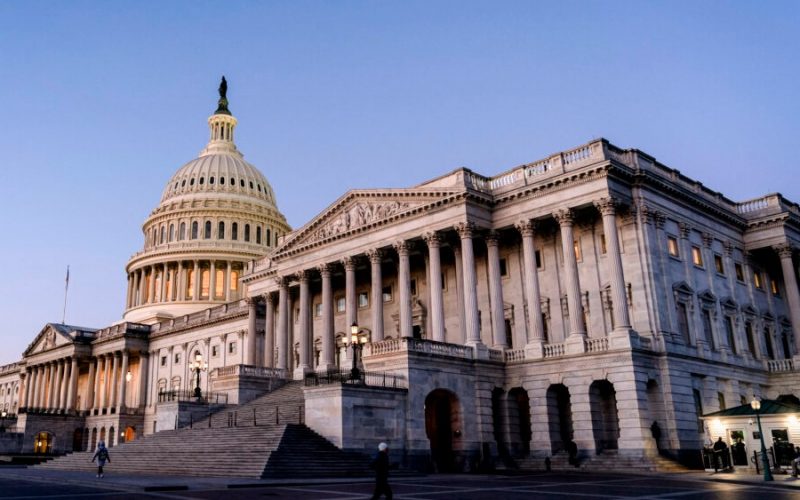The U.S. Senate approved a temporary funding measure on Thursday night and forwarded it to President Joe Biden for his signature. This action narrowly prevented a looming government shutdown set to take effect at midnight on March 1.
The bill passed through the Senate with a 77–13 vote on Thursday night, following the defeat of four Republican amendments during the floor proceedings.
Earlier, the U.S. House of Representatives approved the fourth temporary spending bill for the fiscal year 2024 in a 320–99 vote.
The bill followed a short but heated debate in the lower chamber, highlighting the ongoing division between moderate and conservative factions within the Republican conference. Ninety-seven Republicans opposed the measure.
H.R. 7463, known as the Extension of Continuing Appropriations and Other Matters Act, 2024, signifies a compromise between congressional leaders and the White House regarding federal spending for the current year. This agreement has been the subject of intense debate since last spring.
The extension will provide funding for certain government departments until March 8, while others will be funded until March 22. Leaders anticipate that this move will finally lead to the approval of the six remaining spending bills needed to sustain government operations.
The deal was announced in a joint statement issued by House Speaker Mike Johnson (R-La.), Senate Majority Leader Chuck Schumer (D-N.Y.), House Minority Leader Hakeem Jeffries (D-N.Y.), Senate Minority Leader Mitch McConnell (R-Ky.), and leaders of the appropriations committees of both the House and Senate.
“We are in agreement that Congress must work in a bipartisan manner to fund our government,” the Feb. 28 statement began.
The agreement establishes the guidelines for bills funding various departments, including the Department of Agriculture and the Food and Drug Administration; Commerce, Justice, and Science; Energy and Water Development; Interior; Military Construction and the Veterans Administration; and Transportation and Housing and Urban Development.
As per the agreement, these bills are expected to be enacted into law by March 8 and will adhere to the discretionary spending limits outlined in the Fiscal Responsibility Act from June 2023 and the topline spending agreement reached in January.
Share your thoughts by scrolling down to leave a comment.

